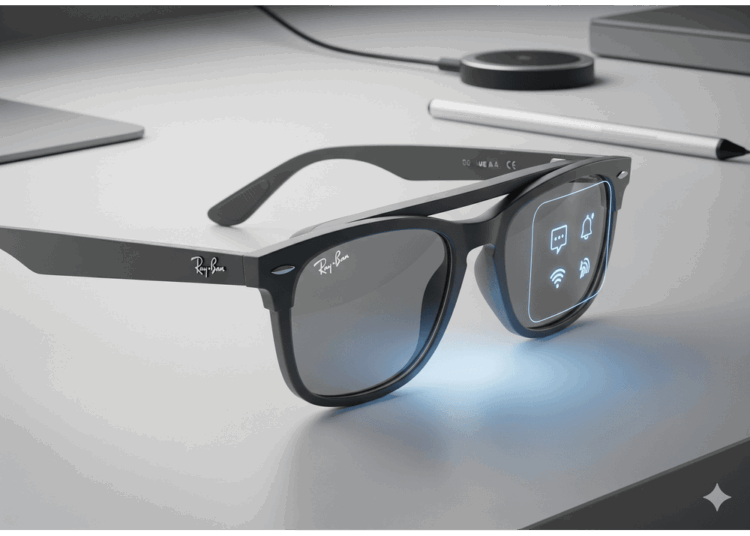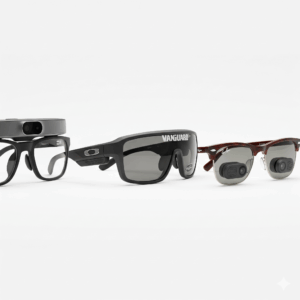Meta’s Vision for AI in Wearables
MENLO PARK, California, Sept 17 — Meta Platforms (META.O) has officially launched its first consumer-ready Meta smart glasses with a built-in display, aiming to push the boundaries of wearable technology and artificial intelligence.
At Meta’s annual Connect conference in California, CEO Mark Zuckerberg introduced the new Ray-Ban Display glasses and a wristband controller that translates hand gestures into commands. Despite minor demo glitches on stage, the launch drew applause as Zuckerberg described glasses as the most natural form factor to reach the promise of “superintelligence.”
“Glasses let you stay present while tapping into AI capabilities that make you smarter, enhance communication, improve memory, and even heighten your senses,” he said.
Pricing and Features
The Meta smart glasses are priced at $799 and will be available in stores starting September 30. The device includes:
-
A small digital display embedded in the right lens for notifications and tasks.
-
A wristband controller to manage texts, calls, and navigation via hand gestures.
-
Built-in AI assistant, cameras, hands-free control, and livestreaming features linked to Instagram and Facebook.
While analysts note the price may deter mainstream buyers, many view this as a crucial step toward Meta’s much-anticipated “Orion” glasses, slated for a 2027 release.
Competing in the AI Race
Meta has been at the forefront of wearable smart glasses, but still trails competitors such as Google and OpenAI in advanced AI model development. Zuckerberg has already sparked a Silicon Valley talent war, aggressively recruiting engineers while pledging to spend billions on AI chip innovation.
Despite challenges, research firms like IDC believe Meta’s role in the market will be central. IDC forecasts a 39.2% rise in shipments of AR/VR headsets and smart glasses in 2025, with Meta expected to fuel much of the growth through its Ray-Ban collaborations with EssilorLuxottica.
Analyst Perspectives
Industry analysts see the launch as reminiscent of Apple’s debut of the Apple Watch—an early experiment in shaping new consumer behavior.
“For everyday use, glasses are non-intrusive and practical,” said Mike Proulx, analyst at Forrester. “Meta just needs to prove that the benefits justify the premium price.”
Jitesh Ubrani from IDC echoed similar views, noting the glasses offer great value for the tech but warned that software still needs to evolve before mass adoption.
Expanding the Product Line
In addition to the Display glasses, Meta introduced Oakley Vanguard glasses, priced at $499 and designed for athletes. These integrate with Garmin and Strava to deliver real-time training stats, post-workout summaries, and up to nine hours of battery life.
Meta also refreshed its earlier Ray-Ban smart glasses, now offering nearly double the battery life and an upgraded camera. Priced at $379, they are more expensive than the previous $299 version but come with significant improvements.
Challenges Ahead
The launch comes as Meta faces growing scrutiny over child safety on its social platforms. Recent whistleblower reports and investigations have raised concerns about Meta’s AI chatbots interacting inappropriately with minors and the harmful impact of VR experiences on children.
Still, Zuckerberg remains optimistic, pitching the Meta smart glasses as a gateway to a future where humans can blend AI seamlessly into everyday life. He likened the 2027 Orion glasses prototype—dubbed a “time machine to the future”—as the ultimate vision of AI-powered wearables.
Looking Ahead
The new Display glasses may not immediately achieve mass-market success, but experts believe they represent a major leap toward Meta’s larger ambitions in AI and wearable computing. As one of the first mainstream attempts to merge glasses with AI-enhanced daily living, they could lay the groundwork for the company’s future dominance.
For now, the challenge remains: persuading consumers that the $799 investment is worth it.
Stay ahead of the curve in technology and AI innovation with IMPAAKT, the top business magazine bringing deep insights into how companies like Meta are shaping the future.














